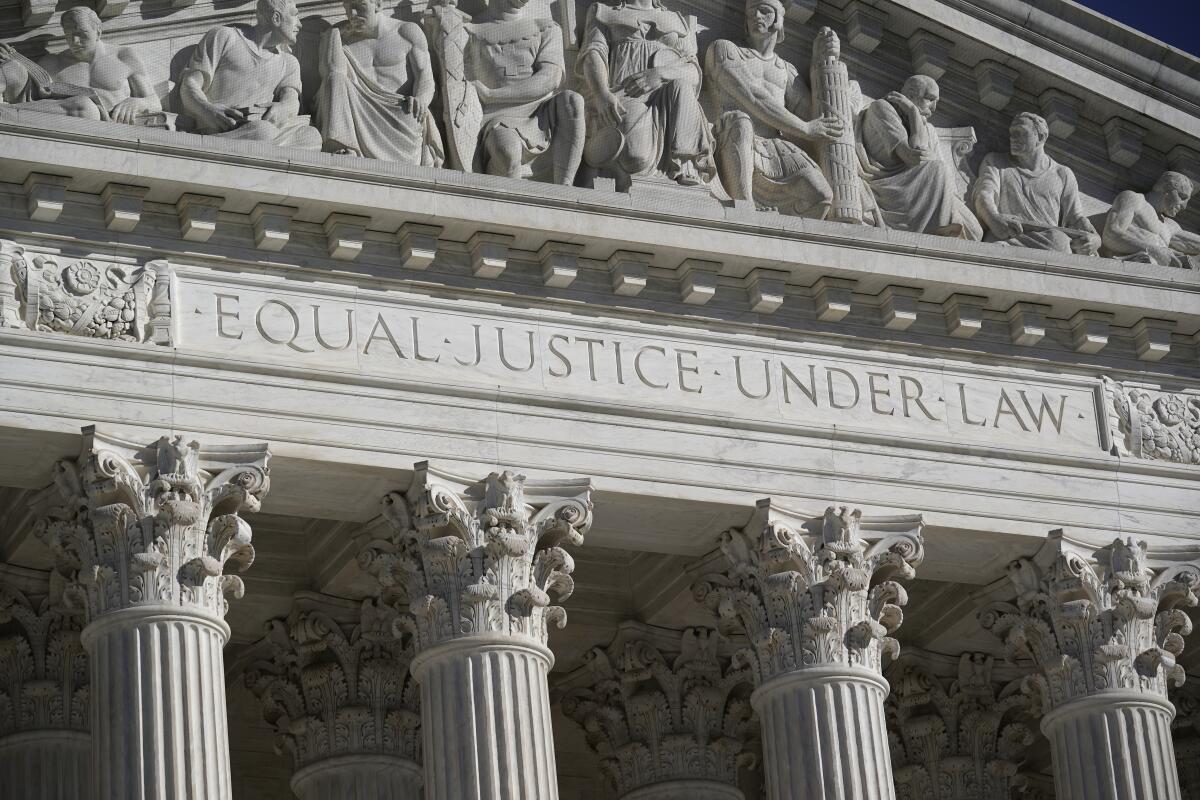Supreme Court will decide whether web designer has a right to turn away same-sex couples

WASHINGTON — The Supreme Court on Tuesday agreed to decide whether a conservative Christian woman who designs websites has a free speech right to turn away same-sex couples, even though a state civil rights law requires businesses to be fully open to all without regard to their sexual orientation.
Lorie Smith, a Colorado graphic artist and web designer, says she wants to expand her business to design custom websites for weddings, but not for same-sex couples.
She is “willing to work with all people regardless of race, creed, sexual orientation, and gender,” her lawyers told the court. “But she cannot create websites that promote messages contrary to her faith, such as messages that condone violence or promote sexual immorality, abortion, or same-sex marriage.”
She sued seeking a ruling that would uphold her right to a free-speech exemption, but she lost before a federal judge and in a 2-1 decision by the 10th Circuit Court of Appeals in Denver.
The case is the latest in which conservatives are invoking the 1st Amendment to shield Christians from antidiscrimination laws or protect their rights to express themselves in public spaces.
Last month, the justices said they would hear the case of Joseph Kennedy, a former high school football coach in Bremerton, Wash., who insisted on praying at the 50-yard line after games. School officials objected, but Kennedy said he had a free speech right to pray at school.
Four years ago, the court was split and unable to rule clearly in a similar dispute involving the Masterpiece Cakeshop and cake maker Jack Phillips. He had refused to make a wedding cake to celebrate the marriage of two men and was accused of violating Colorado’s civil rights law.
He appealed based on the freedom of speech, but in the end, the court handed down a narrow ruling. By a 7-2 vote, the Supreme Court said he had been treated unfairly by the state commission that enforced the law.
The justices did not rule on Phillips’ free speech claim. Since then, two conservatives — Justices Brett M. Kavanaugh and Amy Coney Barrett — have joined the court.
Now the same lawyers for the Alliance Defending Freedom who represented the baker are back before the court and are seeking a broader ruling that would give conservative Christians a partial exemption from state laws that would require them to participate, even indirectly, in a same-sex marriage.
The exemption, they say, would be based on 1st Amendment rights to freedom of speech and free exercise of religion. But in a brief order issued Tuesday, the court said it would limit the issue to free speech and decide “whether applying a public-accommodation law to compel an artist to speak or stay silent violates the Free Speech Clause of the 1st Amendment.”
A decision in favor of the web designer could have a significant impact in California and 19 other states that forbid businesses from discriminating against LGBTQ customers. It could give business owners an exemption based on their religion to refuse to provide flowers, photography or other products or services for a same-sex marriage.
Her appeal in 303 Creative vs. Elenis, Smith contends that the appeals court “took the extreme position that the government may compel an artist — any artist — to create expressive content, even if that content violates her faith. ... If left in place, the 10th Circuit’s decision will allow officials to compel Democratic speechwriters to plug Republican candidates and Muslim artists to create cartoon parodies of Allah.”
Attorneys for Lambda Legal Defense and Education Fund in Los Angeles urged the court to rule that business owners do not have “a license to discriminate” based on their religious views.
With the new case, “we are witness yet again to the unrelenting anti-LGBTQ crusade being waged by self-described Christian fundamentalist legal groups aiming to chip away at the hard-won gains of LGBTQ people by carving out swaths of territory where discrimination can flourish,” said Jennifer C. Pizer, a senior counsel at Lambda. “The constitutional protections for religious freedom and free speech were never intended as weapons of discrimination for those doing business with the general public.”
Colorado’s state attorneys had urged the court to deny the appeal. They argued the state law was not a restriction on free speech, but a ban on discrimination by businesses engaged in commerce.
“Requiring the company to produce the same services for same-sex couples that it produces for opposite-sex couples does not require it to speak in favor of same-sex marriage,” they said.
The case will be scheduled for arguments in the fall.
More to Read
Get the L.A. Times Politics newsletter
Deeply reported insights into legislation, politics and policy from Sacramento, Washington and beyond. In your inbox three times per week.
You may occasionally receive promotional content from the Los Angeles Times.











